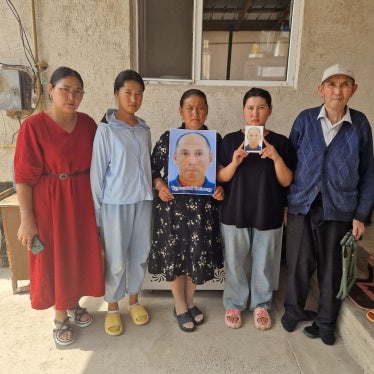Human Rights Watch welcomes the adoption of the outcome of the UPR of Pakistan, which reflected many important recommendations to address human rights concerns in the country.
In particular, we appreciate that Pakistan accepted the recommendations to take measures against religious hatred, prevent violence against religious minorities, and hold to account those responsible for such violence. In 2012, well over 400 members of the Shia Muslim population were killed in targeted attacks that took place across Pakistan. In Balochistan province over 125 Shia were killed, most from the Hazara community. More than 230 Shia have been killed so far in 2013 and deadly attacks on minority groups show no sign of letting up. The militant group Lashkar-e-Jhangvi claimed responsibility for a January 10, 2013 double-suicide bombing in Balochistan’s capital, Quetta, that killed 92 Hazara and wounded 120 more.On February 17, at least 84 people, mostly Hazara, were killed when a bomb exploded in a vegetable market in Quetta. Another 45 Shia were killed in a March 4 bombing attack in Karachi in Sindh province.
The government was unable or unwilling to break the links of Pakistan’s military and intelligence agencies with extremist groups. Sunni militant groups, including those with known ties to the armed forces, its intelligence agencies, and affiliated paramilitaries, including the ostensibly banned Lashkar-e-Jhangvi, operated openly across Pakistan, as law enforcement officials turned a blind eye to attacks. The government took no significant action to protect those under threat or to hold extremist groups accountable.
Pakistan’s government should apprehend and prosecute those responsible for attacks on the Shia and other groups at risk. The government should direct the military and civilian agencies responsible for security to actively protect those facing attack from extremist groups, and to address the growing perception, particularly in Balochistan and Pakistan’s tribal areas, that state authorities look the other way when Shia are attacked. It should increase the number of security personnel in Shia majority areas and enclaves at high risk of attack, particularly the Hazara community in Quetta. The government should also actively investigate allegations of collusion between Sunni militant groups, military intelligence, and paramilitary forces, and hold accountable personnel found to be involved in criminal acts.
We also deeply regret that Pakistan rejected of a number of recommendations to revise discriminatory blasphemy laws, but appreciate it accepted to prevent the abuses. Abuses under the country’s blasphemy law continued as dozens were charged in 2012. At least 16 people remained on death row and 20 were serving life sentences for blasphemy. Members of the Ahmadi religious community have been major targets for blasphemy prosecutions and subjected to specific anti-Ahmadi laws. Militant groups forced the demolition or closure of Ahmadi mosques and vandalized Ahmadi graves across Punjab province.
On March 9, 2013, hundreds of Christians had to flee their homes in the city of Lahore as over 100 houses owned by them were looted and burned by a rioting mob over an allegation that a Christian resident of the colony had committed blasphemy. Police and administrative authorities did not intervene to protect the victims or their property. The blasphemy law facilitates such abuse and Pakistan’s refusal to reform or repeal the law creates an environment of persistent vulnerability for minority communities.






